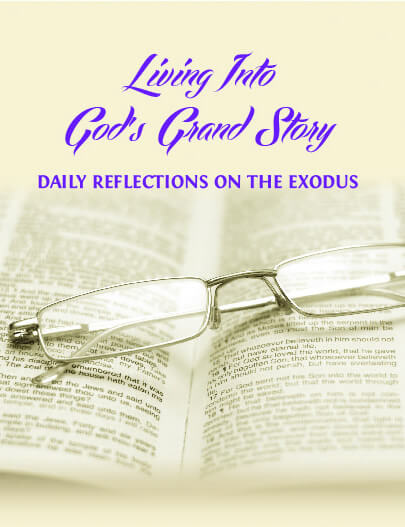
and bring her into the wilderness,
and speak tenderly to her.
From there I will give her her vineyards,
and make the Valley of Achor a door of hope.
There she shall respond as in the days of her youth,
as at the time when she came out of the land of Egypt.
Hosea 2:14-15
Pastoral counselors and therapists often talk about the value of “reframing” our life experiences. They advise stepping back from problems in order to look at them through a different frame of reference or lens. Reframing is viewing trials differently than we might usually see them. Thus in the New Testament James encourages: “Whenever you face trials of any kind, consider it nothing but joy because you know that the testing of your faith produces endurance…” (James 1:2-3). Knowing that testing and trials can produce endurance puts another frame around our problems. We see them through a different lens. Biblical writers do something similar to reframing as they reread life events in the light of the Exodus story. Even our Wilderness trials look different when viewed through the Exodus lens.
In today’s Scripture the prophet Hosea puts on his Exodus glasses to help his people reframe their troubles in the light of Israel’s troubles in the Wilderness. Although Hosea writes 700 years after the actual Exodus, he re-storys contemporary troubles in light of the Exodus. He says that through their Wilderness troubles God will “speak tenderly” (Hebrew: “speak to the heart”) to his people, i.e. “her”. He seeks to woo her through words of love. Just as God had persuaded Israel to leave Egypt, go through the Wilderness, and press on to the Promised Land, so He seeks to persuade them now to return to Him. He promises that He will “restore her vineyards” and they will “respond” as in the days they came out of Egypt.
Perhaps most significant for Hosea’s audience was God’s promise to “make the Valley of Achor a door of hope”. The Hebrew word “achor” means “trouble”; it is a sore reminder of trouble in the Valley of Achor where some of the Israelites rebelled when they first entered the Promised Land (Joshua 7:24-26). But the Valley of Achor, which for centuries had been a reminder of the trouble sin caused, will be made “a door for hope”. How like God to transform even past sin into a door to a new future!
Whether in Hosea’s day or ours, God calls on people to reframe their Wilderness wanderings and sin through the lens of His grand story of grace. God speaks tenderly to us, to our hearts, wanting to persuade us to go forward with Him.
Watch God turn troubles into a new and blessed future. Australian theologian and commentator J. Sidlow Baxter writes:
There is a compassionate adaptability about God’s will for us. Because we have not been in God’s special will for us from the beginning, there is no reason why we should not get into it now. He can take up from where we get right” (Awake, My Heart).
God is eager to take us up right where we are today!
REFLECTION
- Can you think of a trouble, a ‘Valley of Achor’, in which you find yourself today? If so, describe it.
- How might the Spirit of God be moving you to reframe your Wilderness trials in the light of the Exodus?
- Hosea says that God speaks “tenderly” to His wayward people. How have you experienced God’s tenderness?



